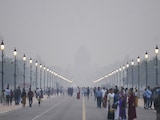What is this MIS-C? Why do parents need to be aware of it? What can we do to reduce the risk of Covid and MIS-C, be it now or during the anticipated third wave?
MIS-C is a syndrome (a constellation of symptoms and signs) being increasingly observed among children (newborn to 21 years of age) only after the COVID pandemic began. This MIS-C can result in serious complications and death if not recognized early. The death rate is as high as one in hundred among children affected with MIS-C! Yes, MIS-C is rare if you compare it to the total number of kids who contract Covid-19, but going only by statistics and ignoring it would be foolishness on our part. For a parent, numbers and statistics are not important. It is the safety of his/her child that matters. Much remains to be learnt about why it occurs and how it occurs, but it is very crucial for parents to be aware of it and for parents to be quick in reaching out to the doctor as soon as they suspect it.
If you ask me for the Indian data now, I may not be able to give it to you, but I can tell you for sure that every paediatrician is seeing more children affected with MIS-C! The number of Pediatric Intensive Care Unit admissions are increasing in parallel with the peaking of Covid in the general population. It is of utmost importance for the government to gear up pediatric hospitals and pediatric intensive care units with the necessary medicines and equipment.
Most children who develop MIS-C either had COVID or had been around someone with COVID, especially in the four weeks preceding the onset of MIS-C. It may have been got from an asymptomatic contact, and the family would therefore not be aware of the possible exposure to Covid-19.
This MIS-C causes inflammation in multiple organs, be it the brain, heart, blood vessels, abdomen, kidneys or skin. This can result in just an innocuous fever, or can affect blood vessels of the heart (resulting in a risk of heart attack). In extreme case, the heart may fail to work, multiple organs can fail, leading to death. It is important for parents to reach out to the doctor if there is a fever (above 100.4 degrees Fahrenheit or 38 degrees Centigrade) lasting longer than 24 to 72 hours and there is a rash on the body, peeling of skin of the tips of the fingers, neck pain or swelling, fiery red eyes or strawberry-like red tongue, abdominal pain, vomiting, diarrhea, fatigue. It's crucial for parents to take the child for emergency care if the child is drowsy, lethargic, confused, has trouble breathing, complains of pain or pressure in the chest, complains of severe abdominal pain, has seizures, or has pale or gray or blue lips, skin or nail beds.
The doctors are likely to order blood tests to check the severity of inflammation, blood clotting parameters, antibodies to SARS CoV2, and to rule out infections. They may order scans of the heart and abdomen. They may ask for X-rays and CT scans as needed. Treatment will be supportive (IV fluids and medicines to improve the function of the heart and the blood pressure), IV immunoglobulin and steroids (to control inflammation) and medicines like Aspirin and Low Molecular Weight Heparin as per guidelines (to prevent excessive clotting of the blood).
Parents need to have a good understanding about COVID and MIS-C, follow all COVID precautions diligently, get themselves vaccinated and get their kids vaccinated when the vaccine becomes available for children.
For its part, the government must enforce COVID precautions strictly. It should also take Covid care door-to-door with the help of health care workers and volunteer groups who can help families with monitoring oxygen levels, triaging and, where needed, referring patients to the hospital, ensuring the completion of isolation and quarantine periods as per the ICMR guidelines irrespective of a follow-up negative PCR report, and providing them with medicines and essentials (this would reduce the community spread drastically).
Door-to-door vaccinations should also be enabled, of course equipping the teams with skills, medicines and equipment to handle adverse reactions (this too would reduce community spread).
The most important aspect is to raise awareness through social media, TV, radio, print media and by involving celebrities.
(Dr. Sivaranjani Santosh is Consultant Pediatrician at Magna Centres and Rainbow Hospitals, Hyderabad.)
Disclaimer: The opinions expressed within this article are the personal opinions of the author. The facts and opinions appearing in the article do not reflect the views of NDTV and NDTV does not assume any responsibility or liability for the same.















